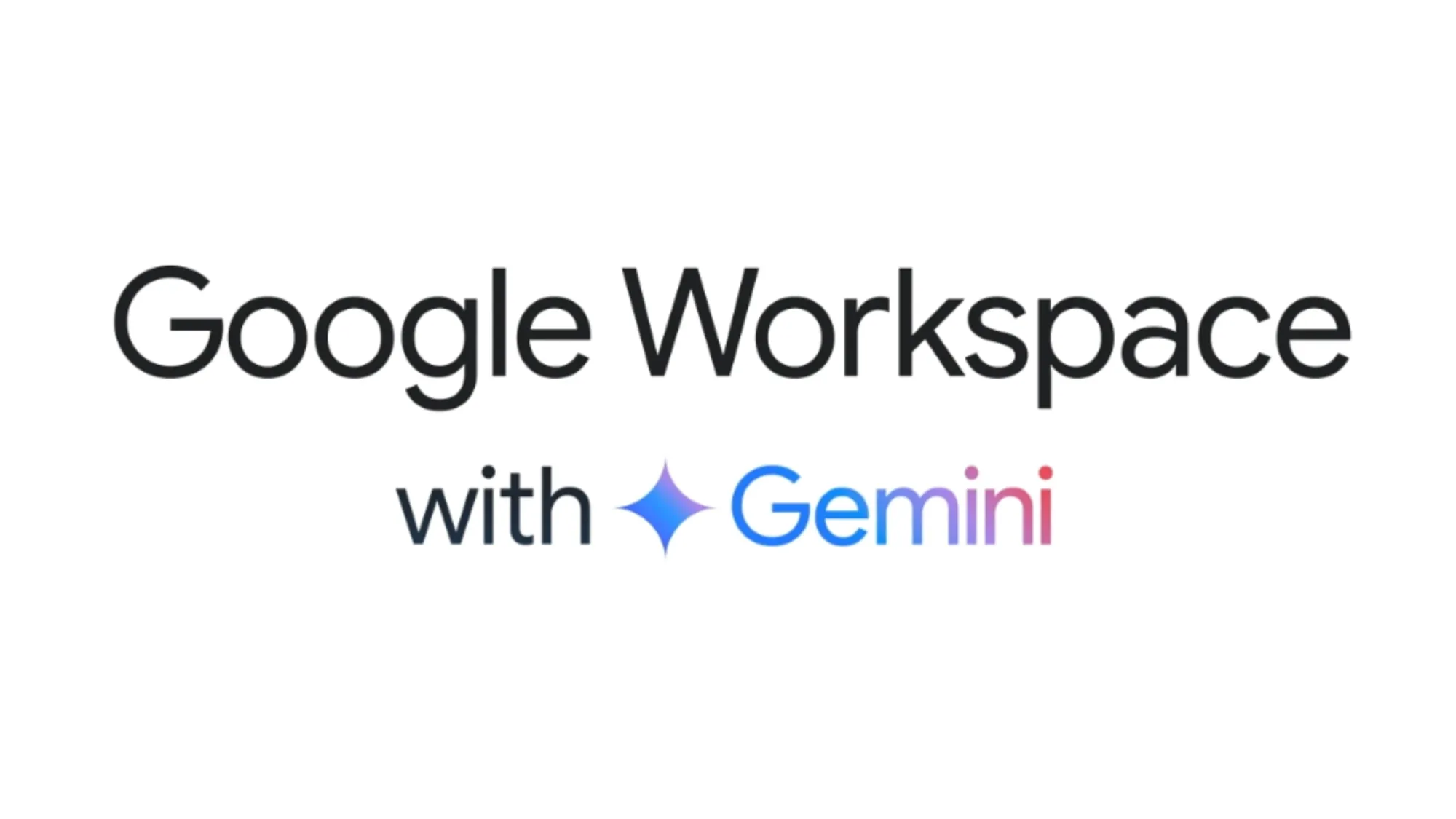Google forces Gemini AI on Workspace users amid pricing complaints
Tech industry voices frustration as Google mandates AI features without opt-out options in Workspace subscriptions.

Google Workspace users expressed widespread frustration on June 10, 2025, following notifications that the company would bundle Gemini AI features into existing subscriptions without providing opt-out alternatives. The mandatory integration sparked criticism from technology professionals who questioned the value proposition of forced AI adoption.
The controversy emerged when Google sent emails to Workspace subscribers announcing the inclusion of Gemini AI capabilities across their productivity suite. According to user reports shared on social media, the notifications indicated price increases tied to AI features that customers cannot disable or remove from their subscriptions.
Summary
Who: Google Workspace business users, led by prominent technology professionals including Gergely Orosz, criticized the company's mandatory AI integration approach.
What: Google announced forced bundling of Gemini AI features into Workspace subscriptions with price increases, eliminating user ability to opt out of AI functionality they may not want or use.
When: The controversy emerged on June 10, 2025, when users received notification emails about the mandatory AI integration and associated pricing changes.
Where: The criticism spread across social media platforms, particularly Twitter/X, where technology professionals shared concerns about forced AI adoption in productivity software.
Why: The backlash reflects broader industry tensions between vendor AI investment pressures and customer preference for optional feature selection, highlighting resistance to using artificial intelligence as justification for mandatory price increases in enterprise software without corresponding opt-out mechanisms.
Get the PPC Land newsletter ✉️ for more like this.
Gergely Orosz, author of The Pragmatic Engineer newsletter and former Uber and Skype engineer, highlighted the issue in a social media thread that gained significant traction among technology professionals. The thread documented user reactions ranging from cancellation threats to comparisons with Microsoft's similar AI integration strategy.
User response patterns reveal industry skepticism
Multiple technology professionals criticized Google's approach to AI monetization through mandatory bundling. Drew Cannon commented that Google cannot allow users to disable AI features because "our average daily users stats would be 100x less," suggesting the company relies on inflated usage metrics rather than genuine user demand.
Yury Molodtsov observed that "after the end of ZIRP, AI turned out to be a great opportunity to raise pricing," connecting the strategy to broader economic conditions following the end of zero interest rate policies. This sentiment reflects industry-wide skepticism about AI being used as justification for price increases rather than delivering genuine value to customers.
The pattern reveals how companies leverage AI as a mechanism for repricing existing services upward. Rather than offering AI as an optional enhancement, Google uses the technology integration as grounds for mandatory subscription increases across its Workspace user base.
Several users compared Google's approach to Microsoft's Office 365 AI integration. Mohammed S. Al Sahaf suggested that "middle-senior management is trying to up the 'utilization rate' of their product to meet some KPI and/or OKR numbers," indicating internal pressure to demonstrate AI adoption metrics.
Technical professionals question AI utility
The thread revealed particular frustration among software developers and technical professionals who found limited value in current AI implementations. Ben Adelson noted that "every time I've tried using it, it's never worked" and questioned Google's decision-making process around the mandatory integration.
Jään offered a pointed comparison, describing "Gemini in Google Office is like the old MS Office paperclip, but somehow more annoying and more useless," while acknowledging that "Gemini stand-alone is goated though." This distinction suggests user acceptance varies significantly between AI implementations.
The criticism extends beyond individual user preferences to broader concerns about product development priorities. Several respondents indicated they would cancel their Workspace subscriptions rather than pay for unwanted AI features, suggesting potential customer churn risks for Google.
Pricing strategy raises competitive concerns
Multiple users highlighted the financial impact of mandatory AI integration. Denis Loginoff noted that while the price difference was "less than $1/month," the principle of forced feature adoption remained problematic. This pricing sensitivity reflects broader market dynamics where customers resist paying for unused functionality.
Quinn Chasan suggested the move represented Google's attempt to "spread the cost impact away from GCP," indicating potential cross-subsidization between Google's cloud computing and productivity software divisions. This analysis points to strategic financial considerations beyond simple product pricing.
The mandatory bundling approach mirrors strategies employed by other major technology vendors using AI as repricing justification. Peter Evensen mentioned that "Microsoft did the same with 365 but if you go to cancel they will give you the original lower price," suggesting retention-focused pricing flexibility that Google has not yet implemented. This pattern demonstrates how AI features serve as vehicles for price increases rather than optional value-added services.

Yield: How Google Bought, Built, and Bullied Its Way to Advertising Dominance
A deeply researched insider’s account of Google’s epic two-decade campaign to dominate online advertising by any means necessary.
AI as repricing mechanism reveals industry trend
The Google Workspace situation exemplifies a broader industry pattern where artificial intelligence serves as justification for subscription price increases rather than optional feature enhancement. Companies frame AI integration as inevitable technological progress while using it to implement upward repricing strategies that customers cannot avoid.
This approach differs fundamentally from traditional software pricing models where customers paid for features they actively selected. The mandatory AI bundling eliminates choice while positioning price increases as technology advancement rather than revenue optimization strategies.
Max Wenzin noted that companies "are spending on AI and now they can say they are profiting on AI. If we stay." This observation highlights how AI investments create pressure to demonstrate returns through forced subscription increases rather than market-driven adoption of valuable features.
Market dynamics drive AI integration pressure
Industry observers connected Google's strategy to broader competitive pressures in the AI market, with artificial intelligence functioning as a repricing tool rather than purely customer-focused innovation. Max Shahdoost noted concerns about declining advertising revenue as a potential driver for subscription price increases, reflecting Google's need to diversify revenue streams through AI-justified pricing adjustments.
The timing coincides with significant AI infrastructure investments across the technology industry. Alex pointed out that companies "have to amortize enormous training costs," highlighting the economic pressure to monetize AI development investments through subscription fees rather than traditional advertising models. This creates a cycle where AI serves both as expensive infrastructure requiring cost recovery and as justification for repricing existing services upward.
Christopher Bosch's inquiry about specific cost differences reflects user demand for transparency in AI-related pricing changes. The lack of clear opt-out mechanisms has generated particular frustration among users who prefer traditional productivity tools without AI enhancements.
Implications for enterprise software pricing
The mandatory AI integration represents a significant shift in enterprise software monetization strategies. Traditional software licensing allowed customers to select specific features and pay accordingly. The new model requires customers to accept bundled AI capabilities regardless of their intended usage patterns.
Google's broader AI investment strategy involves $75 billion in capital expenditure for 2025, creating pressure to demonstrate return on investment through subscription revenue rather than advertising income alone.
For marketing professionals utilizing Workspace for campaign development and client communication, the forced AI integration may provide some operational benefits. However, the lack of choice in feature selection limits organizational flexibility in managing software costs and user training requirements.
Industry precedent and future implications
The response pattern suggests broader industry resistance to mandatory AI features in productivity software. Users consistently expressed preference for optional AI capabilities rather than forced integration, indicating potential market demand for vendors offering more granular feature selection.
The controversy highlights tensions between vendor AI investment requirements and customer value perception. While companies like Google invest heavily in AI development, user adoption remains inconsistent across different professional contexts and use cases.
Several users indicated they would explore alternative productivity platforms, suggesting competitive opportunities for vendors offering more flexible AI integration approaches. This market dynamic may influence future product development strategies across the enterprise software industry.
Technical implementation concerns
Beyond pricing objections, users raised questions about AI feature performance and reliability. The mandatory integration forces users to interact with AI capabilities that may not meet professional quality standards or specific workflow requirements.
The lack of granular control over AI features limits organizational ability to manage data privacy and security concerns. Enterprise customers particularly value the ability to disable features that may conflict with compliance requirements or internal security policies.
User feedback suggests that AI features work inconsistently across different professional contexts. The mandatory bundling approach ignores these performance variations and forces adoption regardless of feature maturity or user satisfaction levels.
Timeline
- June 10, 2025: Google sends emails to Workspace users announcing mandatory Gemini AI integration with price increases
- June 10, 2025: Gergely Orosz and other tech professionals share critical responses on social media
- June 11, 2025: Continued user discussion and criticism of mandatory AI bundling approach
- Related: Google's $75 billion AI spending plan announced in June 2025
- Related: AI integration into travel tools August 2024
- Related: AI advertising expansion in May 2025


